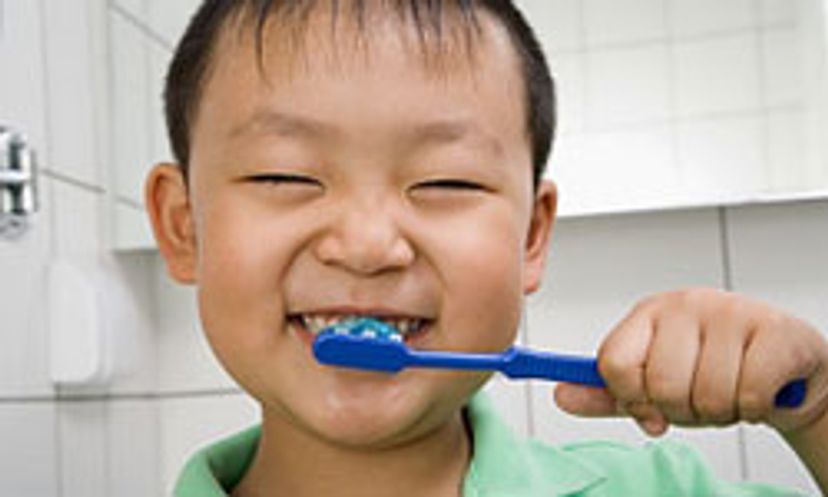
About This Quiz
Do you know the necessities of premium dental hygiene are? They start from the time we are teething toddlers to our aging elder years.Believe it or not, bacteria can accumulate on toothless baby gums. To keep them squeaky clean, parents should run a clean, damp washcloth over baby's gums after mealtime.
The American Dental Association suggests that your child's first cleaning should take place by his first birthday. It won't be as rigorous as later appointments, but this visit will help the dentist identify possible future problems.
This rule is the same for both kids and adults. Brushing the top and bottom of your teeth for one minute each should be plenty to rid your choppers of cavity-causing bacteria and plaque. Be sure to floss, too!
Advertisement
Parents have to take the brushing lead until at least their kid's 5th or 6th birthday. Children just don't have the motor skills and patience to do a thorough job!
You should definitely give your teeth a good scrubbing after downing candy or any other sugary substance, but you need to avoid the toothbrush for at least an hour after munching on citrus fruits. Citrus is highly acidic, and because acid weakens your enamel, you can actually brush away your teeth's protective covering if you pick up your toothbrush too soon!
If a brush is too big for a child's mouth, it becomes much harder to use. Stick with an age-appropriate brush for best results.
Advertisement
You don't have to break the toothpaste bank to be effective. A pea-sized portion is all a kid needs.
Chlorine sanitizes pools, but it also weakens your enamel, which serves as your teeth's protective layer. Wait at least an hour to brush after taking a dip to ensure your enamel isn't removed with the plaque you scrub of your teeth.
You need to brush after snacking on sugary treats, when you wake up and before you go to bed. It sounds like a lot of brushing, but your teeth can get wrecked from all the bacteria, sugar and other gunk that accumulates during the day and overnight.
Advertisement
When brushing the outside of your teeth, angle the bristles toward the gum line to get the best clean possible.
Kids especially find it tough to grasp the concept of time, often mistaking 20 seconds for two minutes. However, a pre-set kitchen timer, stopwatch or any other type of timing device can fix that problem easily enough!
Unbelievable as it sounds, even tiny tots should floss once a day after two teeth come in that are touching each other. Of course, Mom or Dad will have to handle the floss.
Advertisement
Everyone knows that teeth need to be brushed, but don't forget their neighbor, the tongue! Bacteria builds up quickly on the tongue's surface, which can result in some pretty stinky breath.
Nothing takes the place of a professional cleaning, thanks to fluoride treatments, cavity-spotting X-rays and excellent equipment. Twice yearly visits are recommended.
Toothbrushes tend to break down after about three months or so. Make sure to toss yours after a cold or virus because bacteria can live in bristles and possibly make you suffer the same illness twice.
Advertisement
Yep, fluoride is both a toxin and an additive to toothpaste and drinking water. Don't worry too much, however, as the chemical has been proven to help strengthen teeth, and the amount that's added to toothpaste and tap water is minimal. Most agree that there are no serious health risks associated with the fluoride we consume.
Plaque buildup causes gums to become swollen and inflamed. Regular brushing and flossing should keep plaque under control, but regular visits to the dentist will dramatically lesson your chances of contracting gingivitis.
Drinking sugary beverages all day is much worse for your teeth than the occasional snack or meal or even having a soda before bed. Continuous contact with sugar creates a haven for bacteria, which could damage your teeth.
Advertisement
Adults may need to start taking dental hygiene pointers from kids if this trend continues. Not only have do children have less cavities than adults on average, but tooth decay in older, school-aged kids has been cut in half over the past two decades!
Early-stage cavities are usually revealed only at dental appointments. If left untreated, these little cavities can quickly turn into painful problems for your teeth. Ouch!